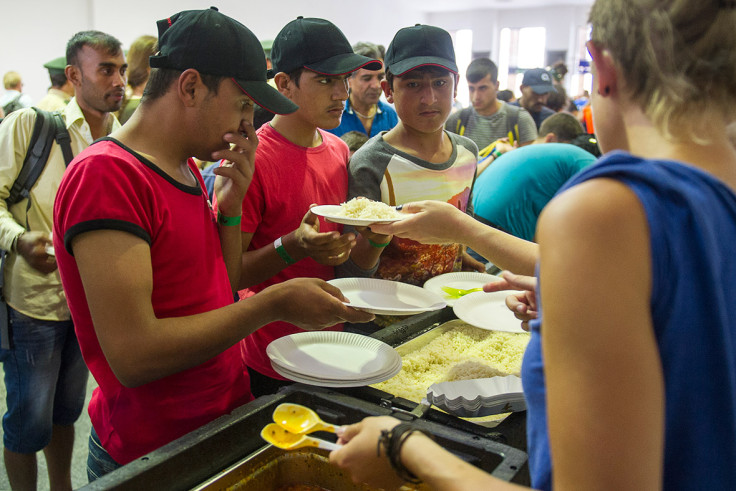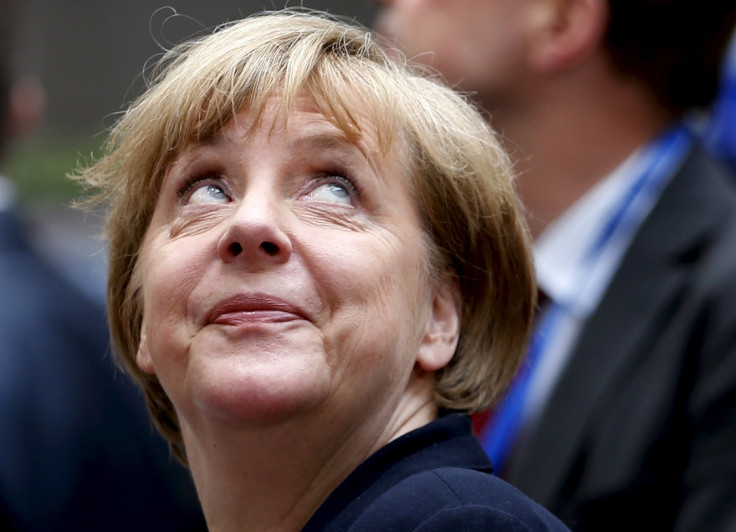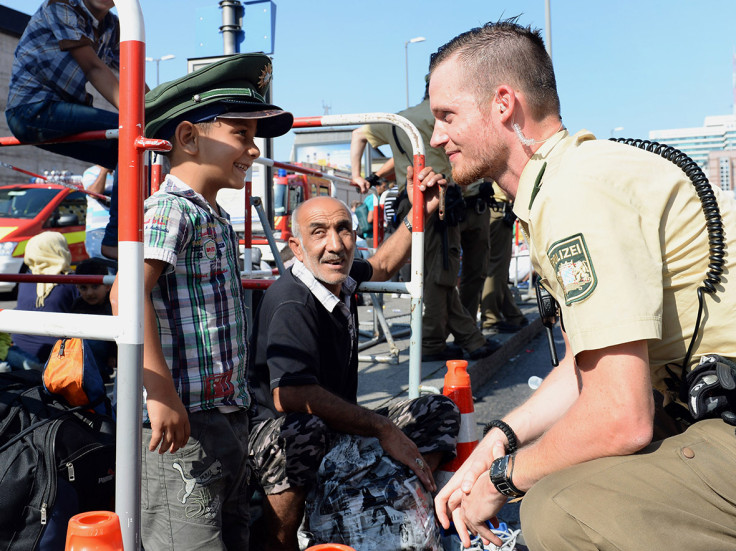Refugees crisis: Angela Merkel leads Germany's rebirth as a promised land for the persecuted

In the 20th century, Germany was defined by three awful men: Kaiser Wilhelm, Adolf Hitler and Joseph Stalin. The first helped bring about the death of the German Empire and millions of its people in the First World War, culminating with the crippling Treaty of Versailles. The second ushered in fascism off the back of Versailles and economic crisis, bringing about the horrors of the Holocaust and yet more death and destruction with another world war. The third carved off his slice of post-war Germany and installed another brutal regime, this time communist, a tyranny that was to last until the fall of the Berlin Wall in 1989 and German reunification a year later.
For most of the century, Germany was a place from which you escaped to seek refuge. In the 21st century, Germany's renaissance is underway and the opposite is now true -- it is a haven, a promised land. Trains arrive into German stations carrying the oppressed and persecuted in, not out.
No longer should the phrase "strong German leader" raise an eyebrow because Angela Merkel, the German chancellor, is something of a beacon among world leaders, particularly in Europe. She has unflinchingly led the continent's most humanitarian response to the refugees crisis spilling out of the war-torn world, from Syria to Sudan, Libya to Iraq. Between 2011, when the Syrian war first exploded, and the end of 2014, Germany took in around 100,000 refugees from the country. By comparison, the UK had taken in just 5,000. And in 2015 alone, Germany is expecting to process as many as 800,000 asylum applications by people fleeing persecution and poverty the world over. Without much complaint from Merkel, either, except for small grumbles that other EU member states could do more to share the moral burden of accepting refugees. She is readying herself to build more houses and put extra resources into accommodating refugees.

It is understandable that Germany should be the destination of choice for the majority of refugees. It is a strong and stable economy, one that has weathered the worst of the eurozone crisis. And, contrary to the public perception that refugees are a drain on resources, it is set to get stronger with the influx. Many of the refugees are skilled workers and graduates who can plug the skills gap emerging in Germany's economy as its working age population falls. Germany's open-arms policy to refugees is not just morally correct, it is a shrewd financial investment too.
Merkel lowered the drawbridge when she dropped Germany's use of the Dublin Protocol, a strict rule that allows EU member states to deport refugees who did not apply for asylum in the first safe European country they reached. But perhaps more significant than Merkel's humane response to the refugees crisis has been that of ordinary German people. Football fans held up "refugees welcome" banners at matches. Refugees arriving by train have been greeted by Germans holding up welcome signs and signing to them as they walk off the platform. Donations of food and clothes and other such essentials have been overwhelming, to the point where some organisations have asked people to stop donating because they have too much.

It would be remiss to ignore tensions in German society. Symptomatic of a broader rise of the far-right across Europe, such as the Front National in France, Germany has witnessed sinister mass demonstrations against immigration on its own streets. Towards the end of 2014, the Pegida protest group exploded, drawing as many as 25,000 to its "anti-Islamisation" demonstration in Dresden. There are plans to formalise Pegida into a political party that will field candidates in elections. One has already stood, unsuccessfully, for the Dresden mayoralty. Pegida may have run out of momentum, but we will see.
The fact remains that Germany is doing more than any other European country to help others in their hour of need. German national pride sounds ominous as the black cloud of the 20th century hangs over the country, its identity and culture. But this new century and the refugees crisis affords Germany a chance to redefine what its national pride means. It is already shooing away the black clouds of its past.
© Copyright IBTimes 2025. All rights reserved.






















